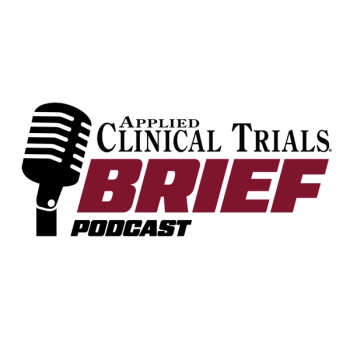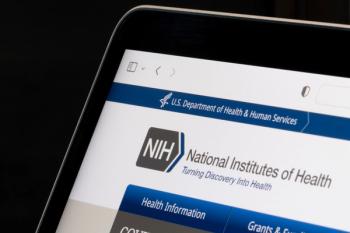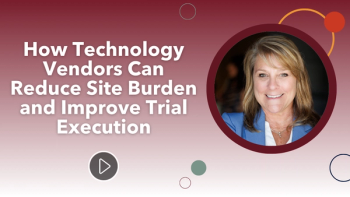
Sustainability should be central to clinical trial design and considerate of how digital tools such as electronic clinical outcomes assessments can help achieve this.

Sustainability should be central to clinical trial design and considerate of how digital tools such as electronic clinical outcomes assessments can help achieve this.

Although DEI remains a core tenet in pharma, strategies and goals have been reframed to align with the evolving political climate.

To maximize the impact of signal detection, KRI frameworks should follow a few guiding principles.

Examine strategies for validating, monitoring, and safely deploying configurable AI agents to ensure compliance and performance in clinical trials.

Capturing insights from clinical research professionals on the key trends and challenges shaping drug development today, from those in clinical trial operations and site relationships, to technology and AI, and the evolving regulatory and policy terrain.

An analysis of primary Phase II protocols paired with their Phase III pivotal trials spotlights the need to balance scientific curiosity with participant and site burden.

Why discussions with patients should go deeper than data-centered dialogues—and emphasize trust, personal connections, and community engagement to foster informed choices in public health.

Last week’s top stories explored how NIH’s shutdown plan is testing research resilience, why data infrastructure must precede AI adoption in 2025, and how sponsors are redefining outsourcing with hybrid resourcing models focused on flexibility, quality, and collaboration.

Ways to identify false certainty, or "errogance," during the clinical site start-up-to-launch process—and better ensure site readiness and prevention of costly errors.

Take a closer look at how agentic AI can automate repetitive monitoring tasks while keeping human oversight central to critical decision-making in clinical research.

Regulatory inspections of interactive response technology systems have surged 140% since 2022, signaling intensified global scrutiny of data integrity, randomization, and system validation in clinical trials.

In this episode of the ACT Podcast, we highlight a recent Q&A featuring Ibrahim Kamstrup-Akkaoui, vice president of data systems innovation at Novo Nordisk; and a feature article by Chris Driver, senior director of product management, Patient Suite at IQVIA, in which they both highlight how sponsors are adopting automation to streamline operations.

Gain perspective on how agentic AI can bridge eCOA, EDC, IRT, and CTMS platforms to reduce manual effort and improve operational efficiency.

Understand how adaptive human-in-the-loop frameworks can maintain safety and decision quality as AI becomes more embedded in trial monitoring and data review.

Learn how streamlined confidentiality agreements and consistent workflows can speed site activation and improve sponsor-site transparency.

Gain insight into how listening to site feedback and prioritizing engagement, training, and local patient understanding can drive smoother startups and stronger study outcomes.

The convergence of AI, decentralized technologies, behavioral science, and real-world evidence opens the door to a new era in which the clinical trial industry proactively addresses participation barriers, integrates social determinants of health, and reimagines patient centricity.

Gain insight into how AI-powered agents can eliminate inefficiencies, shorten development timelines, and free clinical teams to focus on strategic decision-making.

Explore ways to reduce redundancy in site training by applying adult learning principles and focusing on enrollment and randomization essentials.

The latest federal shutdown leaves the NIH operating with just one-quarter of its staff to maintain patient care at its Clinical Center, while broader funding cuts and proposed agency consolidations threaten the future stability of US biomedical research.

By adopting structured practices today, clinical trials can deliver diagnostics that are reliable, impactful, and ready for tomorrow’s healthcare needs.

Discover how early site involvement, streamlined training, and AI-driven tools can simplify system complexity and enhance efficiency in clinical trials.

A look back at last week’s most-viewed content highlights how AI-driven monitoring could improve management of cytokine release syndrome in oncology, how biotech startups are leveraging scalable platforms to accelerate clinical trial operations, and why interoperability challenges remain a top concern for research sites.

Learn how internal infrastructure, cultural buy-in, and workflow-focused technology choices can strengthen collaboration and reduce site burden in clinical trials.

In today’s high-cost R&D environment, pharma success depends less on cost-cutting and more on evidence-based portfolio decisions, niche-buster strategies, and real-world data-driven indication expansion to maximize both ROI and patient outcomes.

Learn how integrated platforms, single sign-on tools, and streamlined training approaches can reduce site burden while supporting compliance and study startup.

Discover how reducing redundancy in feasibility processes and leveraging shared databases can improve collaboration and ease site burden.

At the 2025 SCRS Global Site Solutions Summit, site leaders shared insights on when and how to sell a clinical research site, stressing the importance of timing, cultural alignment, personal goals, and clear terms for long-term success.

FDA outlines its limited operations during the funding lapse, focusing on essential public health activities while halting new drug applications.

In a breakout session at the 2025 SCRS Global Site Solutions Summit, industry leaders from SCRS, QCR, and Syneos Health discussed how sites can prioritize patient empowerment, strengthen community outreach, and collaborate with CROs and sponsors to secure resources for engagement initiatives.